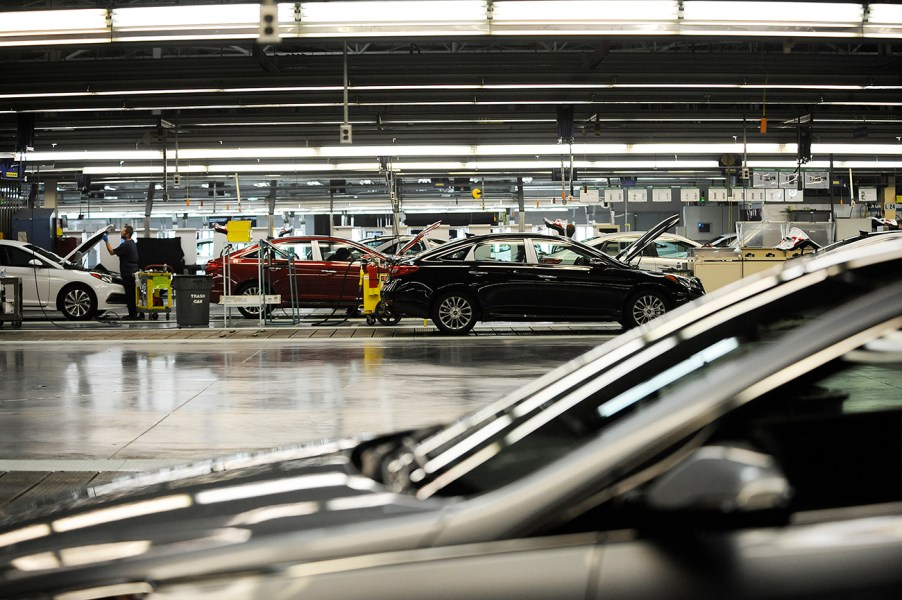
Hyundai Will Avoid Next Chip Shortage By Making Its Own
The global chip shortage was a challenging and unexpected circumstance of the coronavirus (COVID-19) pandemic. Many automakers found themselves caught out by the shortage and were unable to produce new cars. Some brands had to shut plants down temporarily and furlough workers.
Hyundai wants to produce their own chips to avoid the next chip shortage

Even though Hyundai Motors progressed through the chip shortage relatively easily compared to their rivals, the Korean automaker does not want to be caught out should a shortage happen again.
According to Reuters, the global chief operating officer for Hyundai Motors said that the brand is looking to develop its own chips so that they are not reliant on chips from third-party suppliers.
The automaker still had to temporarily shut down some of its factories. However, the COO of Hyundai Motors, Jose Munoz, believes that the automaker has successfully pushed through the worst of the chip shortage, citing that the “toughest months” were August and September.
From this point, Hyundai believes chip supplies will increase. “The (chip) industry is reacting very, very fast,” said Munoz.
“But also in our case, we want to be able to develop our own chips within the group, so we are a little bit less dependent in a potential situation like this,” added Munoz. “This takes a lot of investment and time, but this is something we’re working on.”
Munoz told Reuters that Hyundai Mobis would play a significant role in chip development.
Hyundai saw a sales increase during the shortage

Hyundai was one of the few automakers to see their sales go up during the global chip shortage. Toyota and Tesla also saw increased sales in the same period.
Munoz said that Hyundai decided not to cut their vehicle orders after observing the Asian markets bouncing back more quickly than anticipated. The automaker is looking to capitalize on its momentum and plans to manufacture electric vehicles in the United States by 2022. Hyundai is also looking into upgrading its factory in Alabama to increase its production capacity.
Munoz hopes that by the time they are mass-producing EVs in the United States, the Biden administration will have reworked the increased EV tax credit legislation to include cars built by non-union factories.
“American workers are the same,” said Munoz. “We would like this to be equal for all.”
Hyundai is also investing heavily in hydrogen fuel cells

Developing its own chips is only one process that Hyundai is looking to bring in-house. Hyundai Mobis recently announced that it will build two plants in Korea dedicated to producing hydrogen fuel cells.
Hydrogen fuel cell electric vehicles (FCEVs) seem to be taking hold in Asian markets and Europe, so Hyundai wants to be ready for it. Hyundai Mobis also discussed plans to build a hydrogen fuel cell plant in America as well. Though, it remains to be seen when the infrastructure for hydrogen distribution will improve in the United States.
If nothing else, Hyundai will be prepared should another chip shortage strike the automotive industry.


